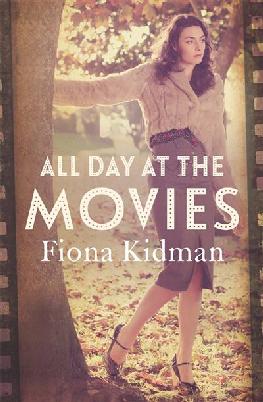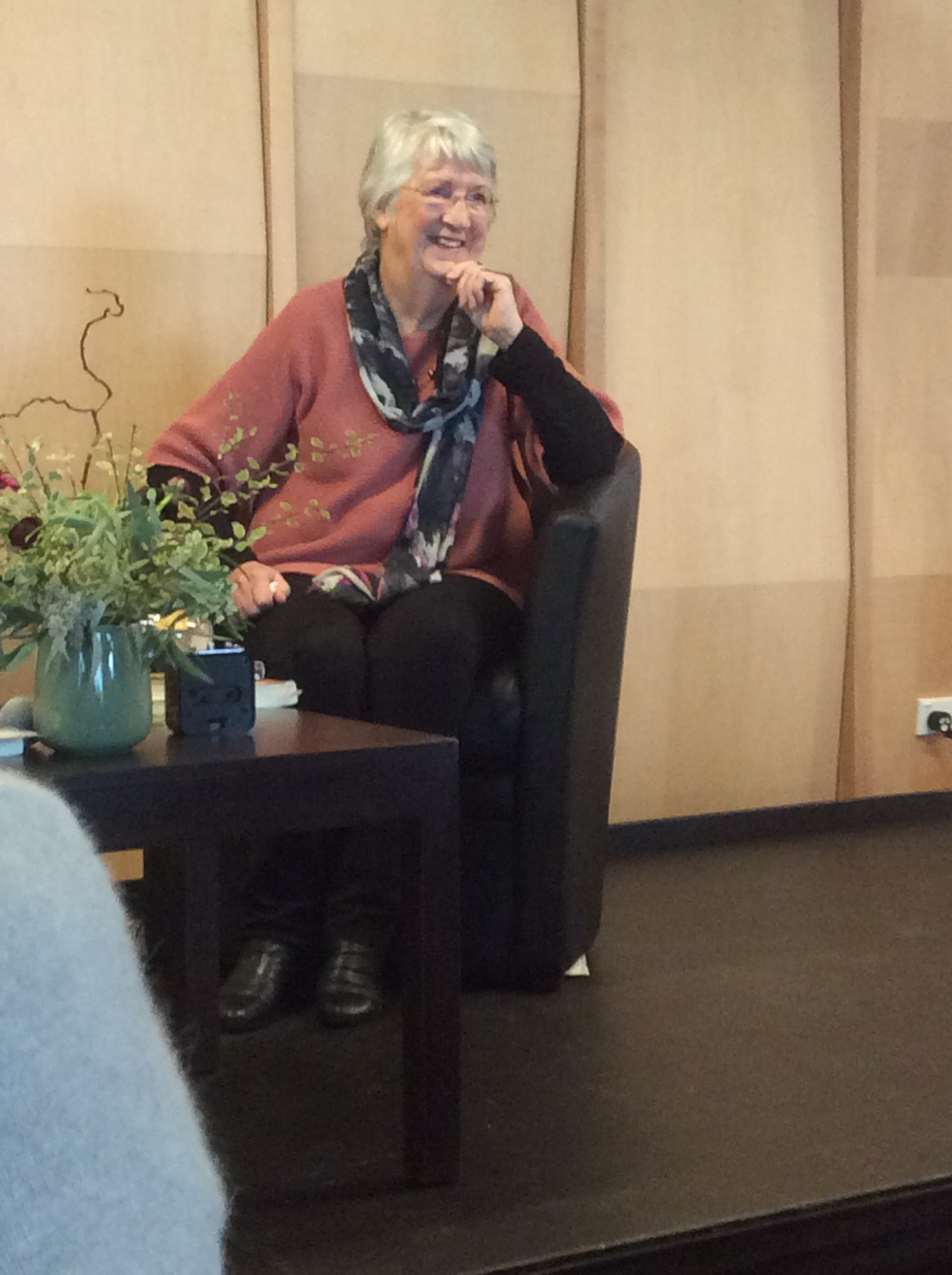 Fiona Kidman's latest book All Day at the Movies explores what it means to be a woman in New Zealand. It's an episodic novel set over six decades. She explores where families were at and where they are going now.
Fiona Kidman's latest book All Day at the Movies explores what it means to be a woman in New Zealand. It's an episodic novel set over six decades. She explores where families were at and where they are going now.
Family is important to me as an only child I was often an observer looking in on families.
But she also says "I try not to put my family into books".
This novel was inspired by the sight of abandoned tobacco kilns. Her father grew tobacco in KeriKeri and the memories of the Nicotiana scent drew her to setting her central character in the tobacco field of Motueka. The novel features a lot of pregnancies - as Owen Marshall observes, some more welcome than others. One of her characters doesn't know who her father is.
Fiona acknowledges pregnancy is a huge issue in women's lives. She is an adoptive mother herself, and acknowledges adoption was not handled well in the past. Recently her novels are set around a central historical character - but in this novel she wanted to say something about politics, how decisions made in Wellington affect people's lives.
Fiona has always been a political animal. She was part of the 1981 Springbok tour movement as explored in her novel Beside the Dark Pool. Exploring the social context her characters inhabit over the decades gives her a vehicle to say something about how Wellington decisions affect their lives.
Looking at her characters as they deal with illegitimacy, estrangement, and abuse you may think she has a negative view of life and of men. But she says "I love men". There are at least 5 positive men in the book, even though it may not seem that men come out well.
"I have had a lucky life" one of her characters says in the novel (and she observes it of her own life) which ends on an optimistic note. She looks at the circumstances of her characters and why things happen without making judgments. Authentic characters are important - how real people deal with things and how it affects them in 20, 30, 40 years time. Her characters become very real to her - they stand at the kitchen bench and come for rides with her in the car. By the time she sits down to write a novel they have their own voice which has to be listened to. Sometimes she is ready to let them go after a novel, and sometimes they don't want to go away and reappear in another form like her character Jessie Sandal from Songs of the Violet Café.
Fiona has always been a feminist writer as is evident in A breed of Women. She sees herself not as a woman's writer but a writer writing for women. She first thought of herself as a writer as a 22-year-old in the 1960s. It was in an era when it was embarrassing to be pregnant. She had worked at Rotorua Library and moved to Rotorua High School library when she married her husband who also worked there. When she got pregnant, students remarked "Got her up the duff eh Sir!", leading to a request for her to leave the school. Such were the expectations of the era.
She left and started writing - submitting a play for a competition. Her play evoked the comment that it must have been written by the dirtiest minded young woman in New Zealand.
I felt I did know stuff about being a woman that a middle-aged man in Wellington seemed not to know.
Fiona often struggled with expectations:
What am I doing sitting at the kitchen table, buying the kids clothes not preserving hundreds of jars and doing this.
She worked as a secretary of PEN and the NZ Book Council and hoped to help authors think of writing as working.
Her favourite genre is short stories but they don't sell a lot of books and she loves poetry but working in other genres is necessary. She made as much money working in television in a month as writing in a couple of years.
- Through working in television, she learnt to see as you would through the camera
- through radio work she learn to listen especially to the silences
- through journalism she learnt to ask questions
All have been useful in her writing work. Poetry is not so much thinking about the audience more spontaneous.
Read more about Fiona Kidman from her official website, The Academy of New Zealand Literature, and Penguin Press.
Find books by Fiona Kidman in our collection.





Add a comment to: An Hour with Dame Fiona Kidman – WORD Christchurch